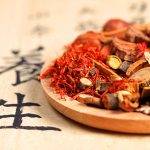
Cut down your plastic footprint: 3 Ways to protect yourself from TOXIC plastic products
Thursday, November 19, 2020 by Zoey Sky
http://www.naturalnewsresearch.com/2020-11-19-3-ways-protect-yourself-toxic-plastic-products.html

Plastic is a versatile material, but it’s also one of the most dangerous to your health. According to a study published in the journal Environmental Science and Technology, the majority of plastic products you use every day are full of toxic chemicals.
Common plastic products contain various toxins
Plastic waste continues to accumulate across the planet, with plastic pollution even ending up in the ocean and harming marine animals. Researchers studied plastics in commonly used products, such as yogurt cups and bath sponges, and found that three-quarters of them contained toxic chemicals. (Related: REPORT: 8–14 million tons of microplastics are polluting the ocean floor.)
Martin Wagner, a biologist at the Norwegian University of Science and Technology and coauthor of the study, explained that it’s difficult to determine which substances were in the products tested because plastics are made of a complex chemical cocktail.
Plastics are made using thousands of chemicals. It’s impossible to determine if they’re safe for regular use. Even if manufacturers know which ingredients are used for their products, they’re not required to reveal this information.
Over 5,000 different types of plastic are used to make different products, such as food packaging, furniture and toys. These plastics, meanwhile, are made with thousands of different chemicals. For food packaging alone, manufacturers use at least 4,000 different chemicals, making it hard to study plastics comprehensively and identify which chemicals are dangerous to human health.
To narrow their search, the researchers tested items made from eight types of plastics that are used to manufacture everyday products. They exposed cell cultures to the mix of chemicals found in these plastics.
The researchers found that:
- An alarming 60 percent of products were toxic to cells.
- About 40 percent induced oxidative stress, which is known to cause diabetes, high blood pressure, heart disease and cancer.
- Thirty percent had endocrine disruptive effects, which can cause birth defects, cancers and developmental disorders in children.
The researchers were stumped when it came to identifying the toxic chemicals in the plastic products. They couldn’t even name most of the chemicals in the plastics.
Of the more than 1,400 substances tested, the researchers were able to identify only 260 of them. Most of the tested plastics contained toxic chemicals. For example, out of four different kinds of plastic yogurt containers studied, two were toxic to cells.
In the past, plastic was mostly made from petroleum and other fossil fuels. Thankfully, more people have been looking for greener ways to produce plastic from renewable resources like plants instead of petroleum.
Unfortunately, these bioplastics have the same chemical structure as other kinds of plastic. Additionally, they’re linked to similar risks.
How to protect yourself from toxic plastic
Being more conscious of the products you use is key to avoiding toxins in plastic. The researchers offered three suggestions to protect yourself from toxic plastic products.
Reduce your plastic footprint. This includes buying fresh food or unpackaged products. You can also use products made of other materials like glass or wood.
Avoid products that contain polyvinyl chloride (PVC) and polyurethane (PUR), which are both full of toxins. PVC is often used to make everyday products, such as:
- Apparel
- Food packaging
- Industrial pipes
- Kitchen items
- Office supplies
- Plastic furniture
- Plastic swimming pools
- Plastic wrap
- Vinyl flooring
- Vinyl siding
When buying products, check each one for the #3 recycling code used to identify anything made with PVC.
Support movements for safer products. Write to retailers and manufacturers and ask them to be transparent about what materials their products are made of. Encourage lawmakers to strictly regulate the industry and eliminate toxic plastics that can affect public health.
Below are more tips that you can follow to avoid exposure to toxins in plastic:
- Bring refillable water bottles.
- Use glass or stainless steel drinking straws and say no to plastic utensils when dining out or ordering take out.
- Always carry reusable shopping bags or tote bags.
- Buy pantry staples and other dry foods at bulk bins.
- Purchase organic cosmetics, toiletries and cleaning products in plastic-free containers.
Reduce plastic waste and avoid buying products made with toxic plastics. Learn more about plastic waste and how to reduce your plastic footprint at Pollution.news.
Sources include:
Tagged Under: Tags: badhealth, badpollution, environment, marine life, ocean health, plastic pollution, plastic waste, plastics, research, toxic chemicals, toxic plastic waste, water pollution
RECENT ARTICLES


HERBS BEAT COVID: Taiwanese study: Two TCM formulations significantly reduce progression of COVID-19
By Ramon Tomey

One in three Americans is poisoned with 2,4-D weed killer, study finds
By Ethan Huff

Study links poor sleeping habits to rising obesity in teens

Octogenarians who walk at least an hour every week reduce their risk of dying from all causes by 40%
COPYRIGHT © 2017 NATURAL NEWS RESEARCH


